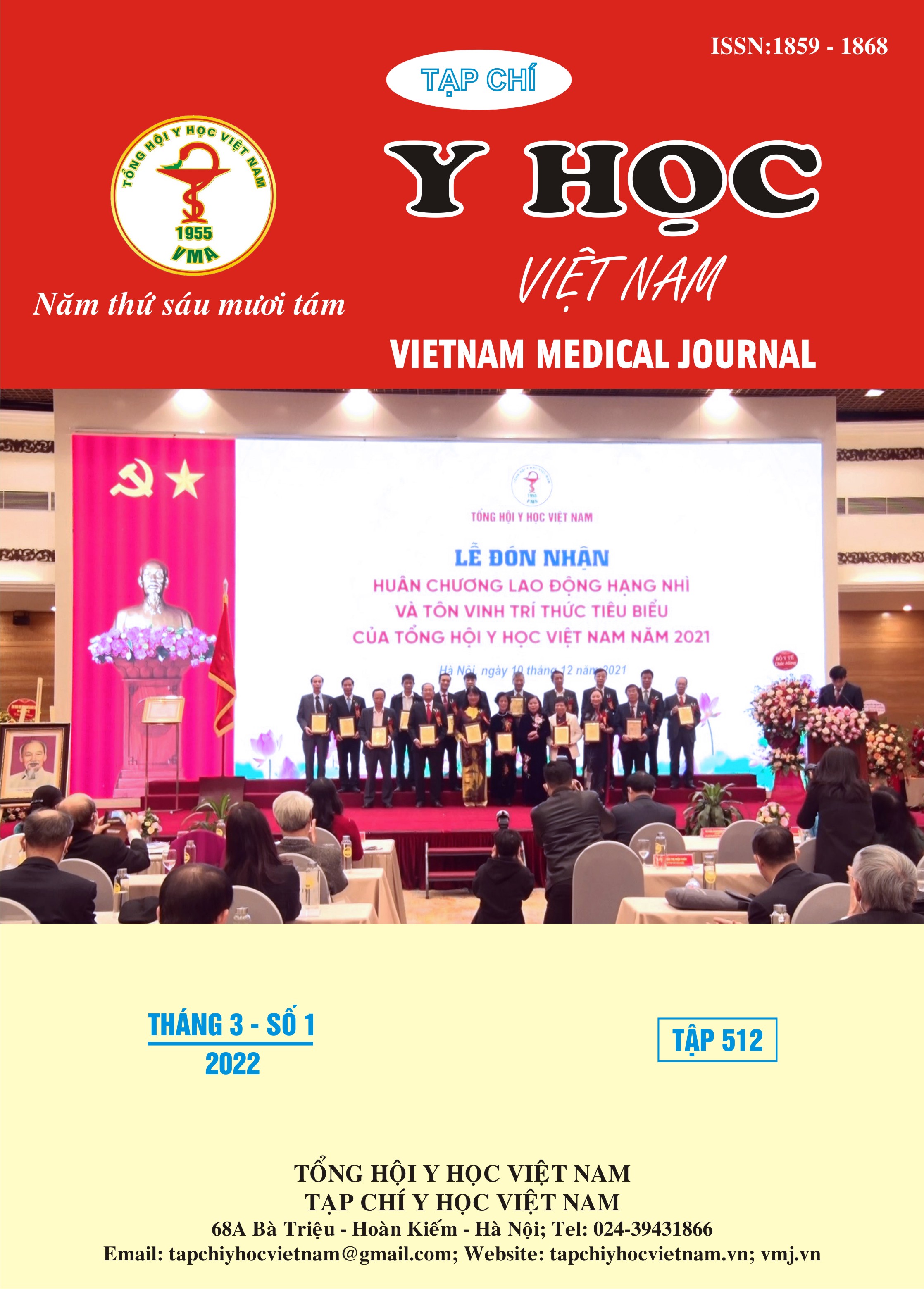RELATIONSHIP BETWEEN DEGREE OF SKIN THICKENING AND QUALITY OF LIFE IN SYSTEMIC SCLEROSIS PATIENTS
Main Article Content
Abstract
Objectives: To study the degree of skin thickening and the relationship between the degree of skin thickening and the quality of life of patients with systemic sclerosis (SSc). Subjects and methods: 60 patients with SSc were diagnosed and treated at the Clinic Department, Bach Mai Hospital. The patients were assessed for skin thickness by modified Rodnan skin score and quality of life (QoL) by the SF-36 survey. Results: the proportion of patients with mild and moderate thickening of the skin was 51.67% and 30%, respectively. The mean modified Rodnan skin score was 19.40 ± 9.84. The mean SF-36 score in the mild thickening group (61.24±9.52) was higher than in the moderate/severe thickening group (46.33±7.07). The SF-36 score was strongly correlated with the modified Rodnan skin score with R= -0.72 (p < 0.001). Conclusions: The majority of SSc patients had mild and moderate thickening of the skin (81.67%). The degree of skin thickness is strongly negatively correlated with the QoL of SSc patients.
Article Details
References
2. Cossutta R, Zeni S, Soldi A, Colombelli P, Belotti MA (2002). Evaluation of quality of life in patients with systemic sclerosis by administering the SF-36 questionnaire. Reumatismo. 54(2), 122-7
3. Park EH, Strand V, Oh YJ, Song YW, Lee EB (2019). Health related quality of life in systemic sclerosis compared with other rheumatic diseases: a cross-sectional study. Arthritis Res Ther 21(1): 61.
4. Khanna D, Philip J. Clements, Elizabeth R, et al (2019). Minimal Clinically Important Differences for the Modified Rodnan Skin Score: Results from the Scleroderma Lung Studies (SLS-I and SLS-II). Arthritis Res Ther. 21, 23.
5. van Leeuwen NM, Ciaffi J, Liem SIE, Huizinga TWJ (2021). Health-related quality of life in patients with systemic sclerosis: evolution over time and main determinants. Rheumatology (Oxford). 60(8). 3646-3655.


